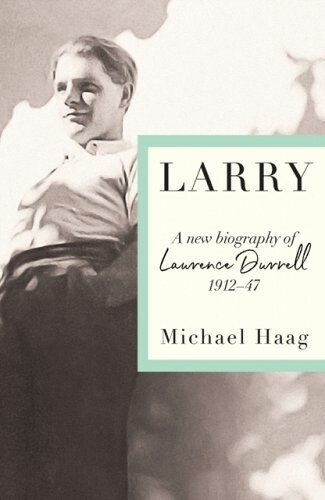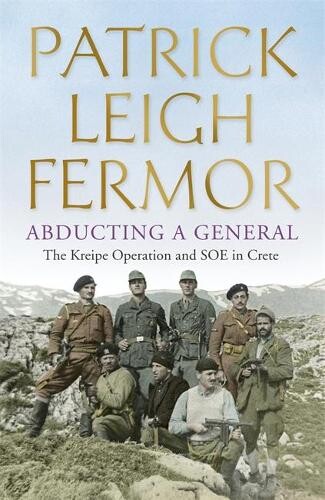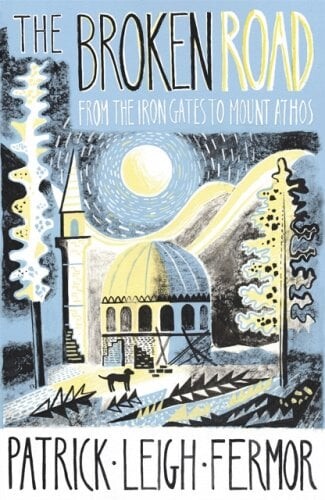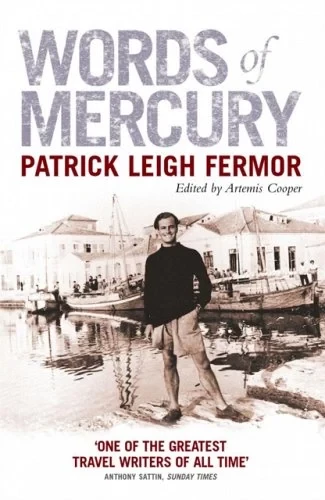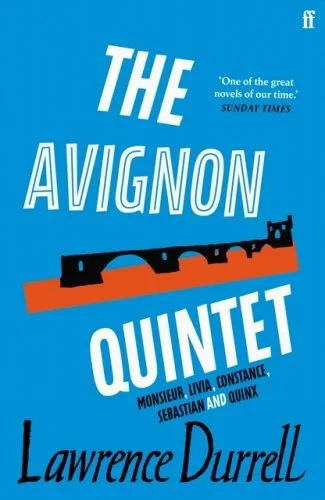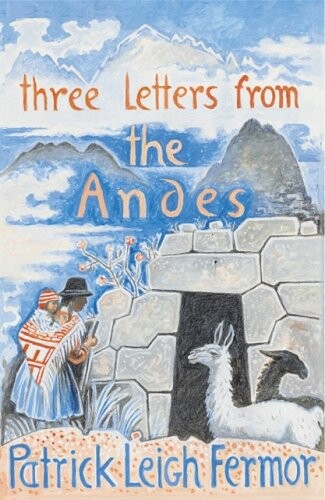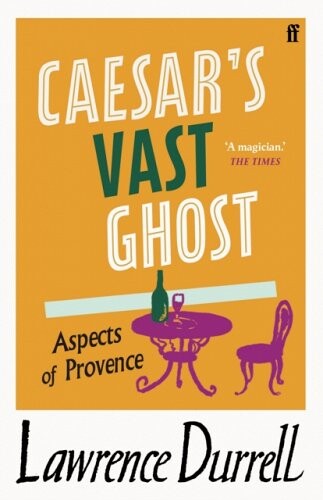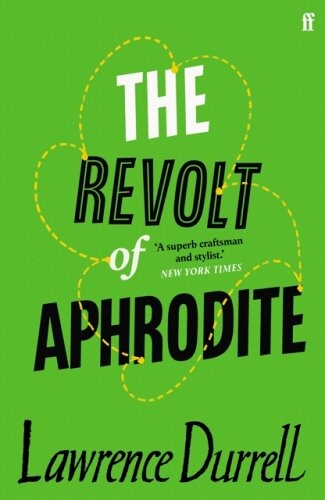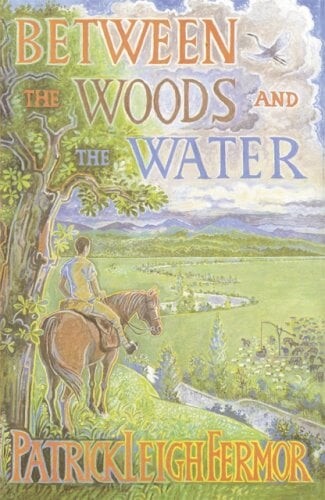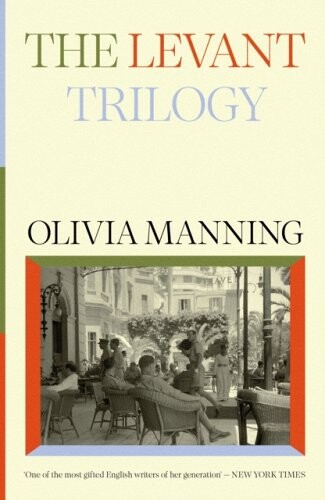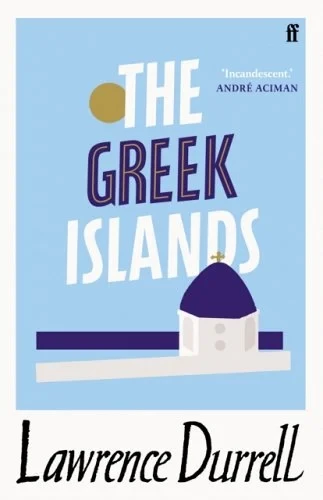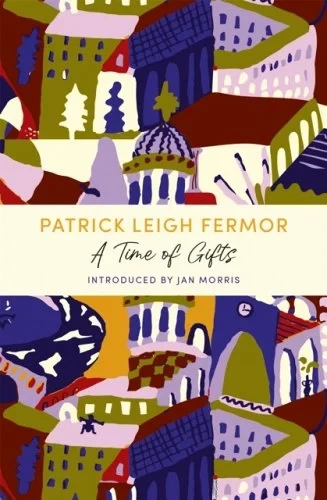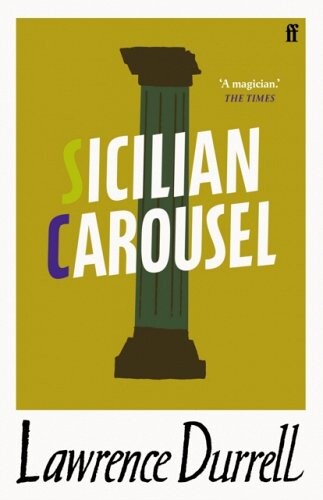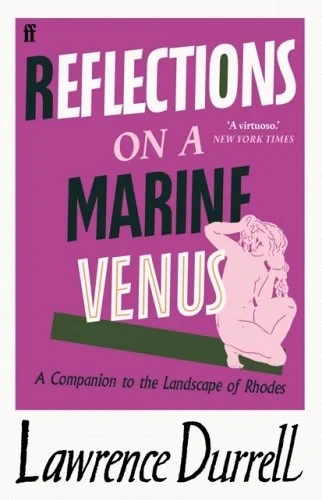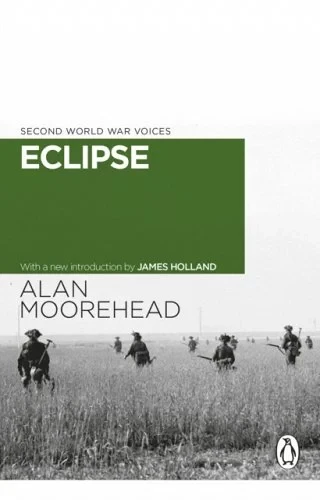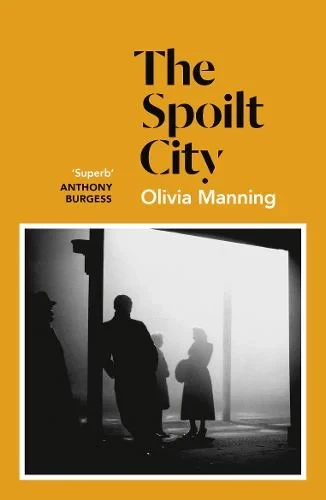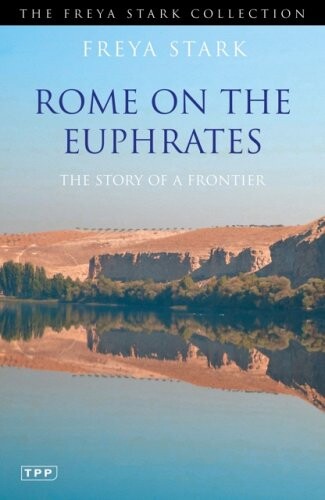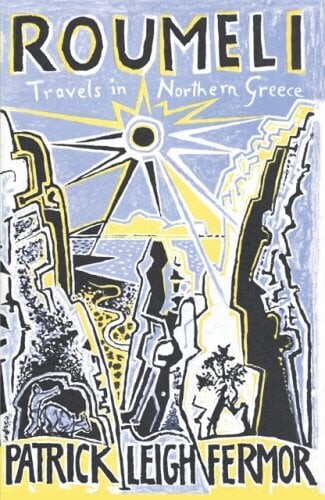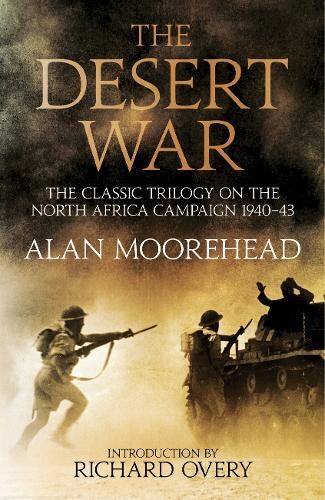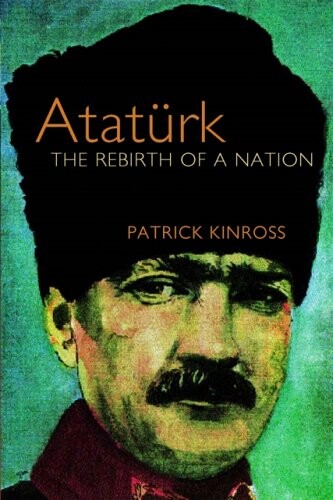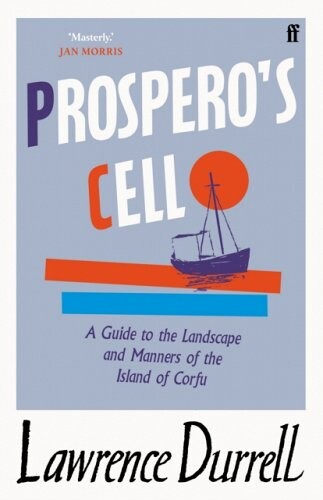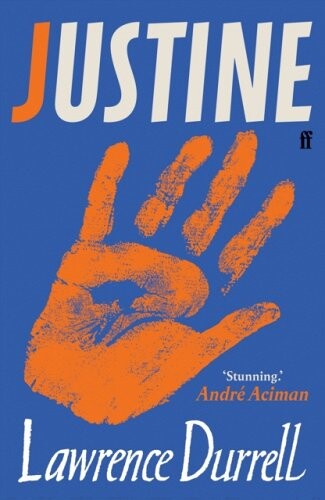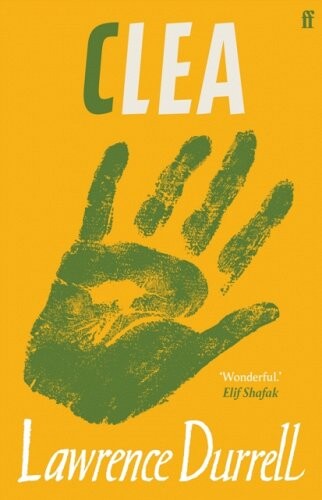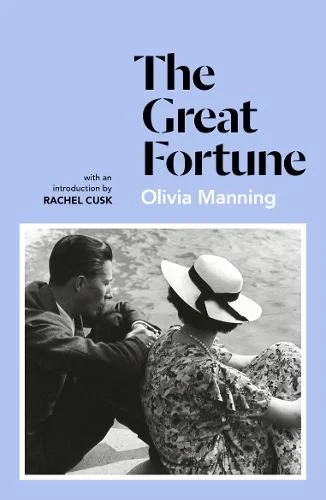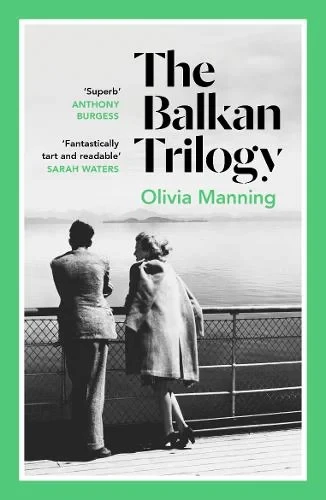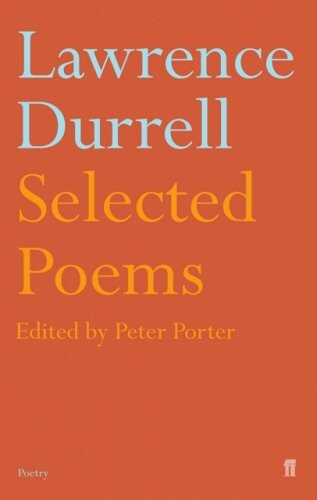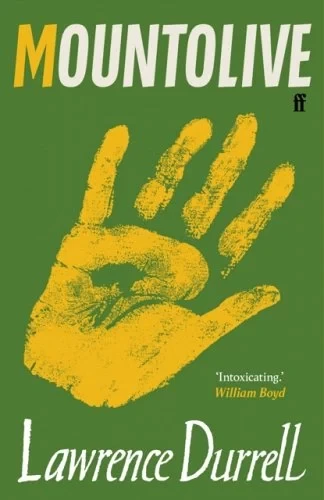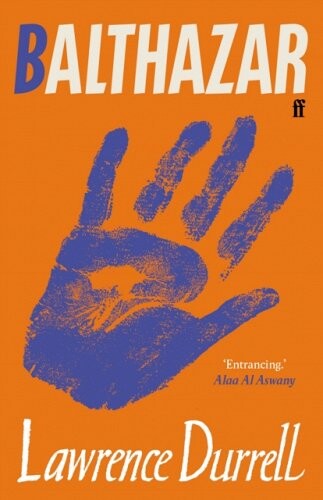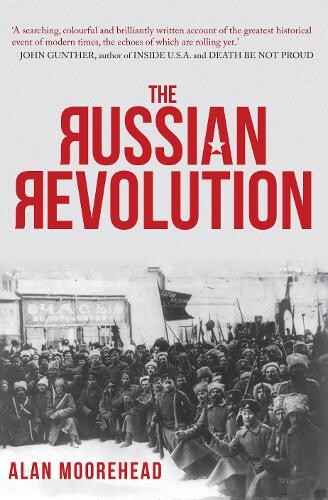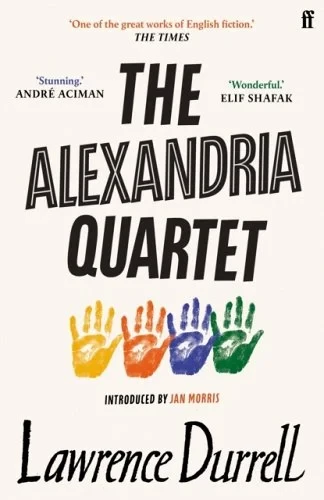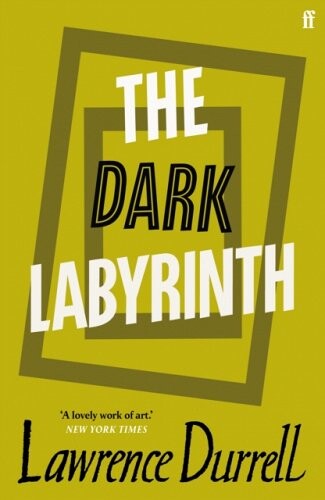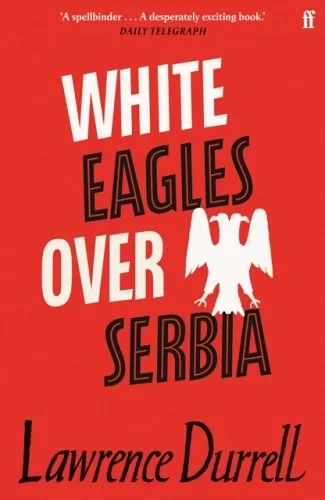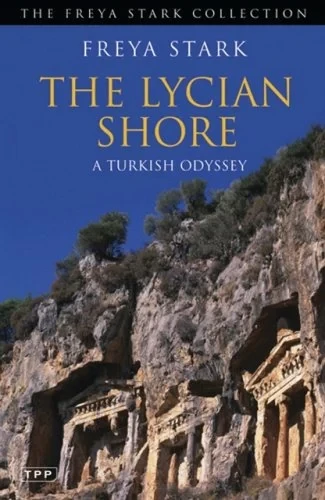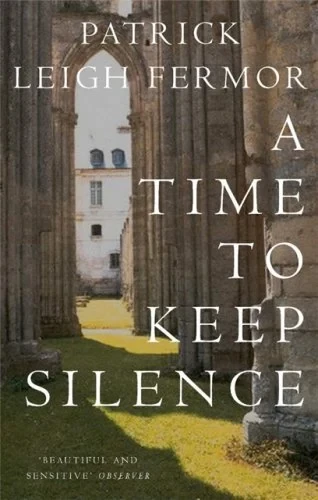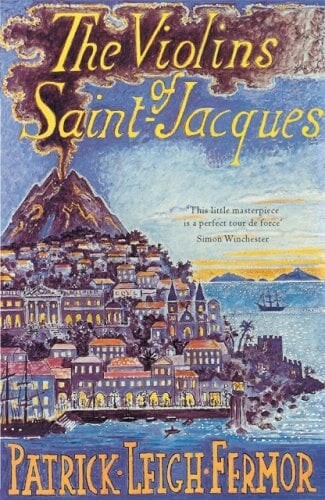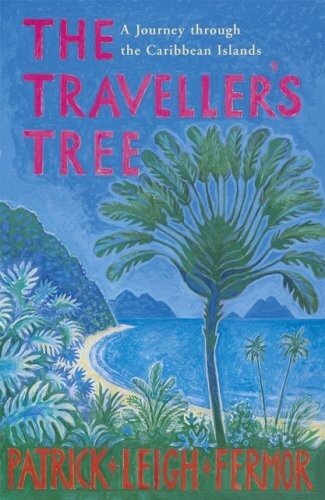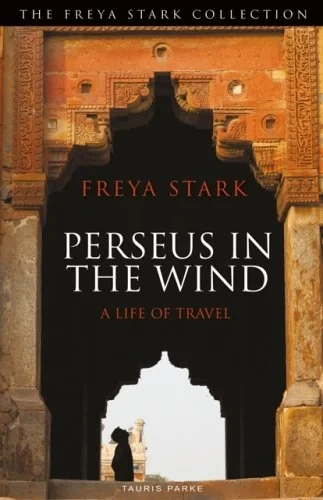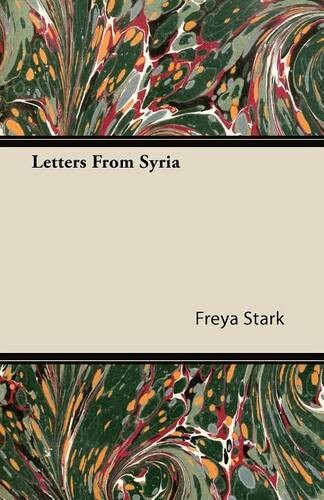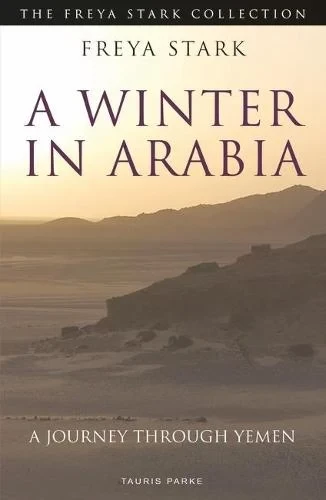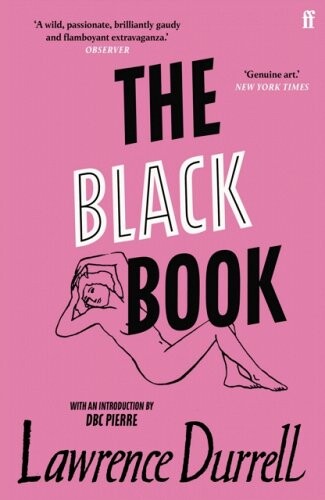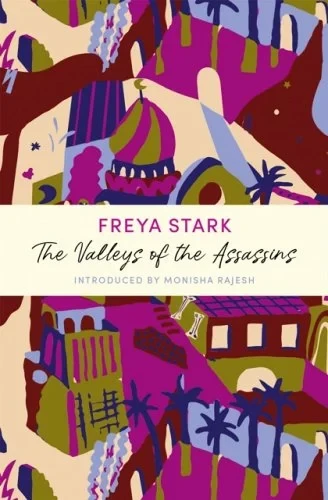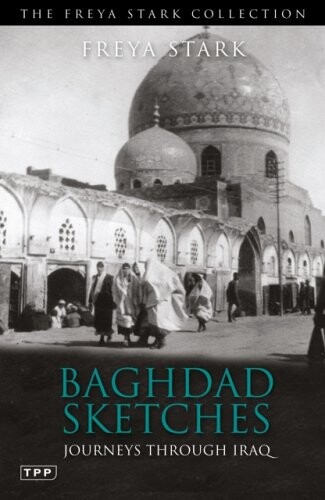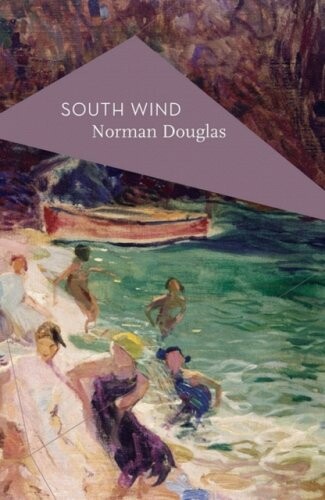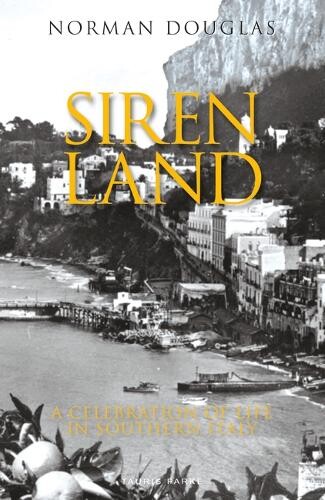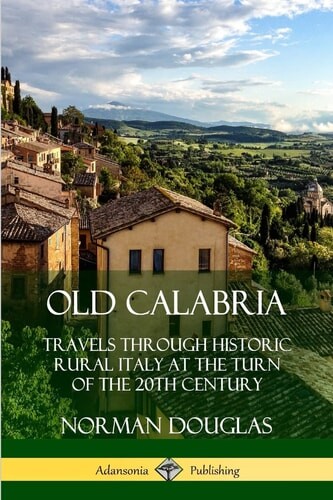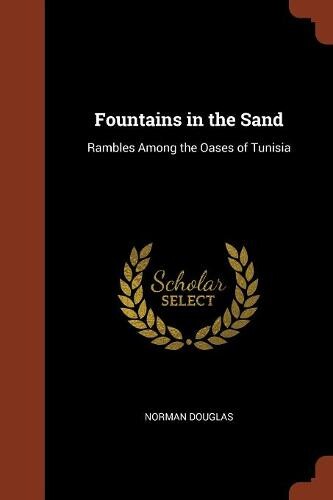Larry: A New Biography of Lawrence Durrell, 1912–1947
Lawrence Durrell, Michael Haag
Lawrence Durrell was unquestionably one of the most distinctive, original and compelling literary figures of his age. From his childhood in India and Burma to his bohemian youth in London and Paris, from his madcap scheme to move his family to Corfu to the formative war years spent in Alexandria – this masterful and richly detailed biography is essential reading to understand the man and the writer. In ‘Larry’, Michael Haag, the world’s foremost expert on the Durrells, brought together his unrivalled knowledge and first-hand meetings with the Durrell family and associates to offer the definitive account of the young Lawrence and the real-life settings and stories that inspired his acknowledged masterpiece, ‘The Alexandria Quartet’.
Find out moreThe Placebo
Lawrence Durrell
Three successive drafts of what became the novel ‘Tunc’, edited and published for the first time: ‘The Village of Turtle-doves’, ‘The Placebo: An Attic Comedy’ and ‘Dactyl’.
Find out moreAbducting a General: The Kreipe Operation and SOE in Crete
Patrick Leigh Fermor
One of the greatest feats in Patrick Leigh Fermor’s remarkable life was the kidnapping of General Kreipe, the German commander in Crete, on 26th April 1944. He and Captain Billy Moss hatched a daring plan to abduct the general, while ensuring that no reprisals were taken against the Cretan population. Dressed as German military police, they stopped and took control of Kreipe’s car, drove through twenty-two German checkpoints, then succeeded in hiding from the German army before finally being picked up on a beach in the south of the island and transported to safety in Egypt on 14th May. ‘Abducting a General’ is Leigh Fermor’s own account of the kidnap, published for the first time. Written in his inimitable prose, and introduced by acclaimed Special Operations Executive historian Roderick Bailey, it is a glorious first-hand account of one of the great adventures of the Second World War. Also included in this book are Leigh Fermor’s intelligence reports, sent from caves deep within Crete yet still retaining his remarkable prose skills, which bring the immediacy of SOE operations vividly alive, as well as the peril which the SOE and Resistance were operating under; and a guide to the journey that Kreipe was taken on, as seen in the 1957 film ‘Ill Met by Moonlight’ starring Dirk Bogarde, from the abandonment of his car to the embarkation site so that the modern visitor can relive this extraordinary event.
Find out moreThe Broken Road: From the Iron Gates to Mount Athos
Patrick Leigh Fermor, Colin Thubron (editor), Artemis Cooper (editor)
The long-awaited final volume of the trilogy by Patrick Leigh Fermor. ‘A Time of Gifts’ and ‘Between the Woods and the Water’ were the first two volumes in a projected trilogy that would describe the walk that Patrick Leigh Fermor undertook at the age of 18 from the Hook of Holland to Constantinople. ‘When are you going to finish Vol. III?’ was the cry from his fans; but although he wished he could, the words refused to come. The curious thing was that he had not only written an early draft of the last part of the walk, but that it predated the other two. It remains unfinished but ‘The Broken Road’ – edited and introduced by Colin Thubron and Artemis Cooper – completes an extraordinary journey.
Find out moreWords of Mercury
Patrick Leigh Fermor
Patrick Leigh Fermor was only 18 when he set off to walk from the Hook of Holland to Constantinople, described many years later in ‘A Time of Gifts’ and ‘Between the Woods and the Water’. It was during these early wanderings that he started to pick up languages, and where he developed his extraordinary sense of the continuity of history: a quality that deepens the colours of every place he writes about, from the peaks of the Pyrenees to the cell of a Trappist monastery. His experiences in wartime Crete sealed the deep affection he had already developed for Greece, a country whose character and customs he celebrates in two books, ‘Mani’ and ‘Roumeli’, and where he has lived for over forty years. Whether he is drawing portraits in Vienna or sketching Byron’s slippers in Missolonghi, the Leigh Fermor touch is unmistakable. Its infectious enthusiasm is driven by an insatiable curiosity and an omnivorous mind – all inspired by a passion for words and language that makes him one of the greatest prose writers of his generation.
Find out moreThe Avignon Quintet: Monsieur, Livia, Constance, Sebastian and Quinx
Lawrence Durrell
Avignon: the kingdom of kings and popes, capital of the historic South of France, heart of legendary Provence. The entwined lives of a group of friends – and lovers – are transformed forever by the outbreak of World War II. But the dramatic present only plunges them further into the darkness of an ancient past, as they become entangled in buried plots, Gnostic cults, religious rituals, and a mysterious hunt for hidden Knight’s Templar treasure. From Hitler’s Europe to the medieval world, French chateaus to Egyptian deserts, ‘The Avignon Quintet’ is an epic symphony of ecstasy and terror, madness and memory, passion and death. Consisting of five majestic novels – ‘Monsieur’, ‘Livia’, ‘Constance’, ‘Sebastian’ and ‘Quinx’ – it is a wild, wise masterpiece that could only be written by the literary master of his century, Lawrence Durrell.
Find out moreThree letters from the Andes
Patrick Leigh Fermor
In 1971 the celebrated traveller Patrick Leigh Fermor accompanied five friends on a remarkable journey into the high Andes of Peru. His adventure took him from Cuzco to Urubamba, on to Puno and Juli on Lake Titicaca, down to Arequipa and finally back to Lima. The expedition was led by a writer and poet, and the party included a Swiss international skier and jeweller, a social anthropologist from Provence and a Nottinghamshire farming squire – all seasoned mountaineers. The other two participants – the author himself and a botany-loving duke – were complete novices. As the group travelled from Lima into increasingly remote parts of the country, Leigh Fermor captured their experiences in a series of letters to his wife. Whether recounting the thrill of crossing a glacier, the rigours of campsite life under a blanket of snow, their lively encounters with locals or the strangely moving sight of a lone condor circling in the sky, the author vividly conveys the excitement of discovery and the intense uniqueness of the land.
Find out moreCaesar’s Vast Ghost
Lawrence Durrell
Provence, Southern France. Celebrated writer and poet Lawrence Durrell made the Midi his home for more than thirty years, and in his final book, he shares his most evocative, dazzling memories of life as a local. A seductive blend of travelogue, poet’s notebook and intimate autobiography, Durrell guides us through the rich layers of human history that lie beneath the region’s legendary landscapes. From stories of magic and mythology infusing the rolling vineyards and vivid lavender fields to tales of Roman conquest, bull-worship and courtly love beneath the wounded blue skies, ‘Caesar’s Vast Ghost’ is a classic memoir to be treasured.
Find out moreThe Revolt of Aphrodite: Tunc and Nunquam
Lawrence Durrell
Felix Charlock is a world-famous inventor. His scientific genius draws him into the web of a sinister multinational corporation called Merlin who recruit him for their own ends. When Felix is married into this wealthy family, ‘The Firm’ sets him an impossible project, demanding that he reinvents his former lover as a living breathing replica. But creating this perfect robot facsimile heralds a new era of destruction, threatening not only Felix’s sanity, but his very existence… Consisting of two novels – ‘Tunc’ and its sequel, ‘Nunquam’ – ‘The Revolt of Aphrodite’ is a dystopian novel of ideas, rich in mystery and drama, with an epic global sweep and dazzling cast. Showing literary master Lawrence Durrell at his most conceptually ambitious, this tale of a modern Frankenstein will revolutionise the way you view technology forever.
Find out moreBetween the Woods and the Water: On Foot to Constantinople from the Hook of Holland: The Middle Danube to the Iron Gates
Patrick Leigh Fermor
The acclaimed travel writer’s youthful journey – as an 18-year-old – across 1930s Europe by foot began in ‘A Time of Gifts’, which covered the author’s exacting journey from the Lowlands as far as Hungary. Picking up from the very spot on a bridge across the Danube where his readers last saw him, we travel on with him across the Great Hungarian Plain on horseback, and over the Romanian border to Transylvania. The trip was an exploration of a continent which was already showing signs of the holocaust which was to come. Although frequently praised for his lyrical writing, Fermor’s account also provides a coherent understanding of the dramatic events then unfolding in Middle Europe. But the delight remains in travelling with him in his picaresque journey past remote castles, mountain villages, monasteries and towering ranges. The concluding part of the trilogy was published in September 2013 as ‘The Broken Road’.
Find out moreThe Levant Trilogy
Olivia Manning
As Rommel advances in war-torn Egypt, the lives of the civilian population come under threat. One such couple are Guy and Harriet Pringle, who have escaped the war in Europe only to find the conflict once more on their doorstep, providing a volatile backdrop to their own personal battles. The civilian world meets the military through the figure of Simon Boulderstone, a young army officer who will witness the tragedy and tension of war on the frontier at first hand. An outstanding author of wartime fiction, Olivia Manning brilliantly evokes here the world of Egypt and the Levant – Syria, Lebanon and Palestine – with perception and subtlety, humour and humanity.
Find out moreThe Greek Islands
Lawrence Durrell
White-washed houses drenched in pink bougainvillea; dazzling seascapes and rugged coastlines; colourful harbours in quaint fishing villages; shady olive and cypress groves; terraces bathed in the Aegean sun… The Greek islands conjure up a treasure-chest of images but nobody brings them to life as vividly as the legendary travel writer Lawrence Durrell. It was during his youth in Corfu – which his brother Gerald fictionalised in ‘My Family and Other Animals’, later filmed as ‘The Durrells in Corfu’ – that his love affair with the Mediterranean began. Now, in this glorious tour of the Greek islands, he weaves evocative descriptions of these idyllic landscapes with insights into their ancient history, and shares luminous personal memories of his time in the local communities. No traveller to Greece or admirer of Durrell’s magic should miss it.
Find out moreA Time of Gifts: A John Murray Journey
Patrick Leigh Fermor
In 1933, aged 18, Patrick Leigh Fermor set out on his ‘great trudge’, a year-long journey by foot from the Hook of Holland to Istanbul. Three decades later he wrote ‘A Time of Gifts’, the sparklingly original account of the first part of this youthful adventure, which took him through the Low Countries, up the Rhine, through Germany, down the Danube, through Austria and Czechoslovakia, and as far as Hungary. Alone, carrying only a rucksack and with a small allowance of only a pound a week, Fermor had planned to sleep rough – to live ‘like a tramp, a pilgrim, or a wandering scholar’ – but a chance introduction in Bavaria led to comfortable stays in castles, and provided a glimpse of the old Europe of princes and peasants. Hailed as a masterpiece, ‘A Time of Gifts’ is in part a coming-of-age memoir, but it is also a rich and compelling portrait of a continent that – despite its resplendent domes and monasteries, its great rivers and grand cities – was soon to be swept away by war, modernisation and profound social change.
Find out moreSicilian Carousel
Lawrence Durrell
Despite decades spent poetically chronicling Mediterranean life in Rhodes, Cyprus and Corfu, celebrated travel writer Lawrence Durrell had never set foot on the largest island, Sicily. For years, his friend Martine begged him to visit her on this sun-kissed paradise, but it took her sudden death to finally bring him to its shores – and he is not disappointed. Joining an eccentric tour group, Durrell immerses himself in the island’s spectacular archaeological remains, and becomes dizzy with Sicily’s rich history, its mysterious myths and meanings. Featuring unpublished poems and illustrated with elegant engravings, ‘Sicilian Carousel’ is a gem that ranks with Durrell’s finest work.
Find out moreReflections on a Marine Venus: A Companion to the Landscape of Rhodes
Lawrence Durrell
World War II is finally over, and after four torturous years serving the Crown in Egypt, Lawrence Durrell seeks peace in the landscapes he has loved ever since his youth in Corfu: Mediterranean islands. He is posted to the Greek island of Rhodes, and from his first dip in the dazzling blue Aegean – which jolts his soul awake for the first time in years – he immerses himself in the rhythms and moods of local life, befriending eccentric villagers and quaffing ouzo as though the war was a distant dream. With his dazzling poet’s eye and passion for excavating ancient history, Durrell recaptures the mythic Rhodes of legend, of knights and crusades, that lies beneath its war-ravaged surface. It is a place that you will never forget.
Find out moreEclipse
Alan Moorehead
Eclipse was the code name given by the Allies to the occupation of Germany. Moorehead’s book describes his experiences in Sicily and southern Italy in 1943, which culminated in the capture of Rome. He tells the electrifying story of D-Day, the liberation of Paris and the Allied advance through northern France and Belgium, the crossing of the Rhine. The author reconstructs, in terrifying detail, the collapse of Germany, the wholesale destruction, mass surrenders and the unimaginable horrors of the concentration camps.
Find out moreThe Spoilt City – The Balkan Trilogy 2
Olivia Manning
Bucharest, 1940. The city is on the brink of invasion and Guy and Harriet Pringle find their position growing ever more dangerous. Harriet longs for safety, while Guy’s idealism frustrates his new wife. But when the Germans march in, Guy believes they must separate in a desperate bid to find safety, so Harriet leaves for Athens. ‘The Spoilt City’ is a dramatic and colourful portrait of a city in turmoil, and of a young couple struggling to make their marriage work in the face of adversity.
Find out moreRome on the Euphrates: The Story of a Frontier
Freya Stark
When Roman legions marched into Asia Minor in 200 BC, their plan was to secure a buffer zone between the Mediterranean, which they virtually owned, and the area beyond, which they sought to isolate rather than control. Along the long frontier of the Euphrates in Turkey lay the easternmost limits of the Roman Empire – a region they called Augusta Euphrantentis. Their expanding involvement lasted eight centuries, draining their energies and culminating in the destruction of the bridge that, since the time of Alexander the Great, had linked China to the commerce of the Mediterranean. Tracing the path of this ancient river and highlighting her travels with the vibrant history of 800 years of Roman warfare and the history of this mighty river, Freya Stark ultimately reveals the futility of war, of arbitrary boundaries and territorial conquest. ‘Rome on the Euphrates’, at once travelogue and history, is one of Stark’s most magnificent and highly acclaimed works.
Find out moreRoumeli: Travels in Northern Greece
Patrick Leigh Fermor
Patrick Leigh Fermor’s ‘Mani’ compellingly revealed a hidden world of Southern Greece and its past. Its northern counterpart takes the reader among Sarakatsan shepherds, the monasteries of Meteora and the villages of Krakora, among itinerant pedlars and beggars, and even tracks down at Missolonghi a pair of Byron’s slippers. Roumeli is not on modern maps: it is the ancient name for the lands from the Bosphorus to the Adriatic and from Macedonia to the Gulf of Corinth. But it is the perfect, evocative name for the Greece that Fermor captures in writing that carries throughout his trademark vividness of description. But what is more, the pictures of people, traditions and landscapes that he creates on the page are imbued with an intimate understanding of Greece and its history.
Find out moreThe Desert War: The Classic Trilogy on the North Africa Campaign 1940 – 1943
Alan Moorehead
In 1940, Alan Moorehead was sent to cover the North Africa campaign by the ‘Daily Express’, and he followed its dramatic course all the way to 1943. The three books he subsequently wrote about the Desert War – later collected as his ‘African Trilogy’ – were swiftly acclaimed as a classic account of the tussle between Montgomery’s Eighth Army and Rommel’s Afrika Corps, under the beating sun of the Egyptian Sahara’s Western Desert. Moorehead was responsible for the celebrated insight that tank battles in the desert are like battles at sea, the lumbering tanks like ships lost in a vast ocean of sand. The ‘New Statesman’ could not have put it better when it described his achievement with this riveting book: ‘There is something of genius in the breadth and penetration of his vision, which encompasses the whole panorama of war and then narrows it down to the particular: the soldier stubbing out his cigarette before going into action, the expression on a tank commander’s face as he is hit… The story of the African campaigns will go down in history as one of the great epics of mankind, largely thanks to Mr Moorehead’s account.’
Find out moreFriends and Heroes: The Balkan Trilogy 3
Olivia Manning
Athens, 1941. Harriet Pringle feverishly awaits news of her husband, trapped in the spoilt city of Bucharest. Yet when the young couple are reunited, Guy once again becomes absorbed in his work, leading Harriet to seek the attention of a handsome young officer. But when Greece is defeated and Europe starts to crumble around them, Guy and Harriet are forced to find a new strength amidst the devastation. Manning’s exquisite observations on love, marriage and friendship during wartime are brought vibrantly to life.
Find out moreAtatürk
Patrick Kinross
The definitive biography of the father of modern Turkey, a powerful figure in the still-unfolding drama of the Middle East. With the collapse of the Ottoman Empire after the First World War came the emergence of new nations, chief among them Turkey itself. It was the creation of one man, the soldier-statesman Mustafa Kemal, who dragged his country from the Middle Ages to the twentieth century, and in defeating Western imperialists inspired ‘the cause of the East’. Lord Kinross writes of the intrigues of empires, the brutalities of civil war, personal courage showing us Atatürk, the incarnation of glory as well as of Kemal’s youthful ambition, and his problems with his wife.
Find out moreProspero’s Cell
Lawrence Durrell
In his youth, before he became a celebrated writer and poet, Lawrence Durrell spent four transformative years on the island jewel of Corfu, fascinated by the idyllic natural beauty and blood-stained ancient history within its rocky shores. While his brother Gerald collected animals as a budding naturalist – later fictionalised in ‘My Family and Other Animals’ and filmed as ‘The Durrells in Corfu’ – Lawrence fished, drank and befriended the local villagers. After World War II catapulted him back into a turmoiled world, Durrell never forgot the wonders of Corfu. ‘Prospero’s Cell’ is his magical evocation of the blazing Aegean landscape, brimming with memories of the places and people that changed him forever.
Find out moreJustine: Introduced by André Aciman
Lawrence Durrell, Andre Aciman
Alexandria, the great winepress of love. Trams, palm trees, and watermelon stalls lie honey-bathed in sunlight. In darkened bedrooms, sweaty lovers unfurl. But in a world trembling on the brink of war, passion and death are inextricable. When a penniless schoolteacher begins an affair with Justine – a married Egyptian lady of unparalleled glamour – their partners are sucked into a whirlpool of jealousy and violence. One of the world’s greatest romances, rich in political and sexual intrigue, Lawrence Durrell’s scandalous ‘investigation of modern love’ set the world alight in 1957 and as André Aciman reveals, it burns just as brightly today.
Find out moreClea
Lawrence Durrell
An expat schoolteacher has spent years in exile reflecting on his turmoiled love affair with Justine, a glamorous Egyptian wife. Returning to wartime Alexandria, he finds that his old friends have suffered dramatic changes of body, mind and fortune – and someone whom he has never really known wishes to see him. His affair with Clea, a bisexual artist, not only changes the lovers, but transforms the dead, forever – and heralds a new beginning, just as Lawrence Durrell’s intoxicating masterpiece ends.
Find out moreThe Great Fortune: The Balkan Trilogy 1
Olivia Manning
Autumn, 1939. Newly-weds Guy and Harriet Pringle step aboard the train to Bucharest. Guy’s lecturing job awaits, alongside friends and the ever-ardent Sophie – but for Harriet, alone and naive, it’s a strange new life. As Guy’s world collides with that of his new bride, Harriet realises how little she knows the man she has married. Manning’s masterpiece, alive with exhilarating characters, is a haunting evocation of young love and the uncertainty of war.
Find out moreThe Balkan Trilogy
Olivia Manning
‘The Balkan Trilogy’ is the story of a marriage and of a war; a vast, teeming and complex masterpiece in which Olivia Manning brings the uncertainty and adventure of civilian existence under political and military siege to vibrant life. At the heart of the trilogy are newly-weds Guy and Harriet Pringle, who arrive in Bucharest, the so-called Paris of the East in the autumn of 1939, just weeks after the German invasion of Poland. Guy’s lecturing job awaits, alongside friends and the ever-ardent Sophie but for Harriet, alone and naive, it’s a strange new life. Other surprises follow: Romania joins the Axis, and before long German soldiers overrun the capital. The Pringles flee south to Greece, part of a group of refugees made up of White Russians, journalists, con artists and dignitaries. In Athens, however, the couple will face a new challenge of their own…
Find out moreSelected Poems of Lawrence Durrell
Lawrence Durrell, Peter Porter (Editor)
In this new selection from the poetry of Lawrence Durrell (the first for thirty years), Peter Porter has drawn on the full range of the published work, from ‘A Private Country’ (1943) to ‘Vega’ (1973), and has provided a long overdue revaluation of Durrell’s poetic career. In his detailed and generous introduction, Porter makes the case for ‘A Private Country’ as one of the most accomplished debut collections of the twentieth century, and traces Durrell’s preoccupations and poetic personality within the wider scene. The selection of poems makes its own strong case for the continuing power and originality of this attractive, metropolitan and wholly individual body of work.
Find out moreMountolive
Lawrence Durrell
David Mountolive, a young English diplomat, has been obsessed with Egypt ever since a youthful love affair. Returning to Alexandria as British Ambassador just before World War II, he unravels an intricate political and religious conspiracy – one that connects a web of wildly different characters, including an exiled schoolteacher and glamorous Egyptian couple. Mountolive gradually exposes the sinister underbelly of these tangled relationships, their deceptions and betrayals mirroring the explosive turmoil of the modern Middle East – and the result is Durrell’s most cinematic masterpiece.
Find out moreBalthazar
Lawrence Durrell
As the threat of world war looms over the city of Alexandria, an exiled Anglo-Irish schoolteacher unravels his erotic obsession with two women: Melissa, a fragile dancer, and Justine, a glamorous married Egyptian woman. Through conversations with Balthazar, a doctor and mystic, these intricate love affairs are cast in an ominous, sinister new light, as his private fixations become entangled with a mysterious murder plot… One of the twentieth century’s greatest masterpieces, rich in political and sexual intrigue, Lawrence Durrell’s ‘investigation of modern love’ in the ‘Alexandria Quartet’ set the world alight. Published in 1958, a year after the sensational ‘Justine’, the kaleidoscopic ‘Balthazar’ burns just as brightly today.
Find out moreThe Russian Revolution
Alan Moorehead
The Russian Revolution dismantled the ancient Tsarist autocracy and led to the rise of the Soviet Union. The Russian Empire collapsed with the abdication of Emperor Nicholas II and the old regime was replaced in February 1917. In the second revolution that October, the Provisional Government was removed and replaced with a Bolshevik (Communist) government. The Bolshevik party, led by Vladimir Lenin, appointed themselves as leaders and seized control of the countryside, establishing the Cheka to quash dissent. To end Russia’s participation in the First World War, the Bolshevik leaders signed the Treaty of Brest-Litovsk with Germany in March 1918. Civil war erupted among the ‘Reds’ (Bolsheviks), the ‘Whites’ (anti-socialist factions) and non-Bolshevik socialists. It continued for several years, during which the Bolsheviks defeated both the Whites and all rival socialists. In this way, the Revolution paved the way for the creation of the Union of Soviet Socialist Republics (USSR) in 1922. In this book Alan Moorehead gives a brilliant account of these formative events. This not only remains the most readable account of the revolution, but sheds fascinating light on the Western view of the Soviet Union at the time of writing during the Cold War.
Find out moreThe Alexandria Quartet: Justine, Balthazar, Mountolive, Clea
Lawrence Durrell
Alexandria, Egypt. Trams, palm trees and watermelon stalls lie honey-bathed in sunlight. In darkened bedrooms, sweaty lovers unfurl. But in a world trembling on the brink of the Second World War, passion and death are inextricable. When Darley, a penniless schoolteacher, begins an affair with Justine – a married Egyptian woman of unparalleled glamour – their partners, Melissa and Nessim, are sucked into a whirlpool of jealousy and violence. One of the twentieth century’s greatest romances, Lawrence Durrell’s scandalous ‘investigation of modern love’ set the world alight in 1957. Rich in political and sexual intrigue, his epic masterpiece burns just as brightly today. Introduced by Jan Morris, this omnibus edition collects all four novels together in all their glory.
Find out moreThe Dark Labyrinth
Lawrence Durrell
A group of English tourists have come ashore from their cruise ship to explore the island of Crete. This motley crew – including a painter, spiritualist, spinster, soldier, convalescent, and elderly couple – are holidaying to seek respite from a broken post-war world. But their journey reaches a disastrous climax when they visit a cave reputed to be the legendary labyrinth of the minotaur, and become trapped within… Set in the glorious Mediterranean landscapes which Lawrence Durrell so famously evoked in his travel writing and novels, ‘The Dark Labyrinth’ is a morality tale unlike any other. Artfully blending horror and humour, comedy and tragedy, witty allegory and profound philosophy, it is a sublime novel, as refreshing today as it was decades ago.
Find out moreWhite Eagles Over Serbia
Lawrence Durrell
Methuen is a seasoned British secret agent, weary of espionage missions and desperately in need of a break – but he can’t resist an assignment to investigate dirty dealings in the Balkans. A fellow British spy has been murdered in Serbia by a guerrilla gang of underground royalists, the White Eagles – but when Methuen arrives, he soon finds himself in a life-and-death struggle, pursued by both the royalists and Communists alike… Inspired by Lawrence Durrell’s own experiences in the British Foreign Office, ‘White Eagles Over Serbia’ is a classic Cold War espionage thriller: a white-knuckle adventure perfect for fans of John le Carre and Graham Greene.
Find out moreThe Lycian Shore: A Turkish Odyssey
Freya Stark
Lycia, on the southwestern coast of Turkey, is an ancient land steeped in mystery, myth and legend. Home to the fiery chimera and to the great heroes Sarpedon and Penderus; heartland of worship for the goddess Leto and her children Apollo and Artemis; old ally of Troy, lure to conquering Cyrus and Alexander and to centuries of travellers, artists and writers – Lycia, part of the ‘Turquoise Coast’ now attracts more tourists to her glimmering shores than any other part of Turkey. In the early 1950s, following the trail of ancient Persian and Greek traders, Freya Stark set out by boat to explore the Lycian coast. She was guided by the traces of Lycia’s rich history and cultural heritage. For all those who now follow in her wake, there can be no better, more evocative or knowledgeable guide to this, Turkey’s most enchanting coast.
Find out moreA Time to Keep Silence
Patrick Leigh Fermor
From the French Abbey of St Wandrille to the abandoned and awesome rock monasteries of Cappadocia in Turkey, the celebrated travel writer Patrick Leigh Fermor studies the rigorous contemplative lives of the monks and the timeless beauty of their monastic surroundings. In his occasional retreats, the peaceful solitude and the calm enchantment of the monasteries was passed on as a kind of ‘supernatural windfall’ which ‘A Time to Keep Silence’ so effortlessly records.
Find out moreThe Violins of Saint-Jacques
Patrick Leigh Fermor
On an Aegean island one summer, an English traveller meets an enigmatic elderly Frenchwoman. He is captivated by a painting she owns of a busy Caribbean port overlooked by a volcano and, in time, she shares the story of her youth there in the early twentieth century. Set in the tropical luxury of the island of Saint-Jacques, hers is a tale of romantic intrigue and decadence amongst the descendants of slaves and a fading French aristocracy. But on the night of the annual Mardi Gras ball, catastrophe overwhelms the island and the world she knew came to an abrupt and haunting end. ‘The Violins of Saint-Jacques’ captures the unforeseen drama of forces beyond human control. Originally published in 1953, it was immediately hailed as a rare and exotic sweep of colour across the drab monochrome of the post-war years, and it has lost nothing of its original flavour.
Find out moreThe Traveller’s Tree: A Journey through the Caribbean Islands
Patrick Leigh Fermor
In this, his first book, Patrick Leigh Fermor recounts his tales of a personal odyssey to the lands of the Traveller’s Tree – a tall, straight-trunked tree whose sheath-like leaves collect copious amounts of water. He made his way through the long island chain of the West Indies by steamer, aeroplane and sailing ship, noting in his records of the voyage the minute details of daily life, of the natural surroundings and of the idiosyncratic and distinct civilisations he encountered amongst the Caribbean Islands. From the ghostly Ciboneys and the dying Caribs to the religious eccentricities like the Kingston Pocomaniacs and the Poor Whites in the Islands of the Saints, Patrick Leigh Fermor recreates a vivid world, rich and vigorous with life.
Find out morePerseus in the Wind: A Life of Travel
Freya Stark
Written just after the Second World War, ‘Perseus in the Wind’ (named after the constellation) is perhaps the most personal, and haunting, of all Freya Stark’s writings. She muses on the seasons, the effect light has on a landscape at a particular time of day, the smell of the earth after rain, Muslim saints, Indian temples, war and old age. Each chapter is devoted to a particular theme: happiness (simple pleasures, like her father’s passion for the view from his cabin in Canada); education (to be able to command happiness, recognise beauty, value death and increase enjoyment); beauty (incongruous, flighty and elusive – a description of the stars and the burst of flowers in a park); death (a childhood awareness of the finality of time and the meaningfulness of the end); memory (the jewelled quality of literature, pleasure, love, an echo or a scent when aged by the passage of time). For those who have loved her travel writing, ‘Perseus in the Wind’ illuminates the motivations behind Freya Stark’s journeys and the woman behind the traveller.
Find out moreLetters from Syria
Freya Stark
‘Letters from Syria’ is the wartime story of the British explorer Freya Stark, having travelled extensively through the Middle East in the inter-war years, travelling further and more widely than any western explorer had done previously. Joining the British Ministry of Information at the outbreak of World War I, she helped spread propaganda to the Arab nations aimed at persuading the Arabs to support the Allies.
Find out moreA Winter in Arabia: A Journey Through Yemen
Freya Stark
Freya Stark is most famous for her travels in Arabia at a time when very few men, let alone women, had fully explored its vast hinterlands. In 1934, she made her first journey to the Hadhramaut in what is now Yemen – the first woman to do so alone. Even though that journey ended in disappointment, sickness and a forced rescue, Stark, undeterred, returned to Yemen two years later. Starting in Mukalla and skirting the fringes of the legendary and unexplored Empty Quarter, she spent the winter searching for Shabwa – the ancient capital of the Hadhramaut and a holy grail for generations of explorers. ‘A Winter in Arabia’ is one of the most important pieces of literature on the region and a book that placed Freya Stark in the pantheon of great writers and explorers of the Arab world. To listen to her voice is to hear the rich echoes of a land whose ‘nakedness is clothed in shreds of departed splendour’.
Find out moreThe Black Book
Lawrence Durrell
Death Gregory has disappeared, abandoning his diaries in a seedy London hotel. Discovered by Lawrence Lucifer, they depict a clique of intellectuals living a life of squalid debauchery: struggling writers and artists consumed by loves, lusts, and a quest for innovation. But as they satisfy violent appetites of the flesh – and mind – their descent into darkness accelerates… Written when he was only 24, Lawrence Durrell described his controversial third novel as ‘a two-fisted attack on literature by an angry young man of the thirties’ in which he ‘first heard the sound of my own voice’. First published in Paris in 1938, it was banned in Britain for nearly four decades due to its ‘obscenity’ (influenced by Durrell’s friend Henry Miller). Vivid, surrealist, and haunting, ‘The Black Book’ peers into the recesses of our souls: and establishes Durrell as a trailblazing stylist.
Find out moreThe Valleys of the Assassins: A John Murray Journey
Freya Stark
Growing up in near-poverty and denied a formal education, Freya Stark had nurtured a fascination for the Middle East since reading ‘Arabian Nights’ as a child. But it wasn’t until she was in her thirties that she was able to leave Europe. Boarding a cargo ship to Beirut in 1927, she went on to become one of her generation’s most intrepid explorers – her adventures would take her to remote areas in Turkey, the Middle East and Asia. ‘The Valleys of the Assassins’ chronicles Stark’s treks into the wilderness of western Iran on the hunt for treasure and in an attempt to locate the long-fabled Assassins in Alamut, an ancient Persian sect. Entering Luristan on a mule, draped in native clothing, Freya bluffs her way past border guards and sets off into uncharted territory; places where few Europeans, and no European women, had ventured. Stark was a woman of indefatigable energy, who often travelled with only a single guide and on a shoestring budget, and who was undeterred by discomfort and danger. Hailed as a classic upon its first publication in 1934, ‘The Valleys of the Assassins’ is an absorbing account of people and place. Full of wit and rich in detail – and also in humanity – her writing brings to vivid life the stories of the ancient kingdoms of the Middle East.
Find out moreBagdad Sketches: Journeys Through Iraq
Freya Stark
During her many years in Iraq, Freya Stark was witness to the rise and fall of the British involvement in the country as well as the early years of independence. Freya Stark first journeyed to Iraq in 1927. Seven years after the establishment of the British Mandate, the modern state was in its infancy and worlds apart from the country it has since become. Typically – and controversially – she chose to live outside the close-knit western expatriate scene and immersed herself in the way of life of ordinary Iraqis – living in the ‘native’ quarter of the city and spending time with its tribal sheikhs and leaders. Venturing out of Baghdad, she travelled to Mosul, Nineveh, Tikrit and Najaf, where she perceptively describes the millennia-old tensions between Sunni and Shi’a, time not having dissipated their hatred. In the 1940s she returned again, this time travelling south, to the Marsh Arabs, whose way of life has now all but disappeared; north into Kurdistan and later, Kuwait, in the days before the oil boom. Painting a portrait of both the political and social preoccupations of the day as exquisitely as she does the people and landscapes of Iraq, ‘Baghdad Sketches’ is a remarkable portrait of the country as it once was.
Find out moreLondon Street Games
Norman Douglas
Step back in time to the bustling streets of early twentieth-century London with Norman Douglas’s charming and nostalgic work, ‘London Street Games’. This delightful book captures the essence of childhood in a bygone era, offering a vivid and affectionate portrayal of the games, rhymes and pastimes that once filled the city’s alleyways, courtyards and playgrounds. Douglas, a keen observer of human nature and culture, meticulously documents the playful traditions of London’s youth, from hopscotch and marbles to skipping rhymes and chase games. Each page is a window into a world where imagination reigned supreme, and the simplest of activities brought joy and camaraderie to children of all backgrounds. More than just a collection of games, ‘London Street Games’ is a cultural treasure trove, preserving the oral history and social fabric of a time when play was woven into the daily lives of city dwellers. Douglas’s engaging prose and keen eye for detail make this book a captivating read for historians, sociologists and anyone with a fondness for the innocence and creativity of childhood.
Find out moreSouth Wind
Norman Douglas
‘The bishop was feeling rather sea-sick. Confoundedly sea-sick, in fact.’ An Anglican bishop, on recuperative leave from his African diocese, alights at the island of Nepenthe for a short stay on his passage to England. Soon he is caught up in the wild and exuberant antics of visitors and residents. Norman Douglas’s famed, and infamous, novel of Capri is a hedonistic journey and an unforgettable classic.
Find out moreSiren Land
Norman Douglas
Weaving the myths of the Sirens into the landscape and history of the island of Capri, ‘Siren Land’ focuses on the legends and archaeology, folklore and daily life, patron saints, local ghosts, wine and the wind of the region. Norman Douglas, one of the twentieth century’s great travellers in Italy, was for most of his life inextricably, passionately, connected to the Bay of Naples. This breathtaking sweep of sea and coastline – dominated by Vesuvius and with Pozzuoli and Sorrento standing sentinel – was Douglas’s first experience of Italy. It was here, on the island of Capri, that he died, some fifty-five years after first buying a villa in Naples. ‘Siren Land’, Douglas’s first travel book, is a homage to a part of the world that captivated him more than any other. Douglas writes with knowledge and an irrepressible exuberance of the past and the present, of legends and archaeology, folklore and daily life, patron saints, local ghosts, wine and the wind.
Find out moreOld Calabria
Norman Douglas
Travel author Norman Douglas shares his experiences and photographs of Calabria, a beautiful and historic yet secluded region of rural Italy, as it was at the turn of the twentieth century. A wonderful guide to a region home to breathtaking landscapes and ancient ruins, ‘Old Calabria’ contains many details of the region and is described from a perspective of the eloquent and well-informed author. The manners of the locals, the customs and appearance of their villages and farmsteads, and the agriculture of the countryside, are narrated evocatively. Over the centuries Calabria has received migrants from Asia, Africa and elsewhere, and the profile of the people – who clearly descend from these migrants – that Douglas has much interest. The cultural and religious customs of Calabria are shown to have evolved somewhat in isolation to the rest of Italy, and life is shown to move slowly and place great emphasis upon traditions and the Roman Catholic faith.
Find out moreFountains in the Sand: Rambles Among the Oases of Tunisia
Norman Douglas
‘Fountains in the Sand: Rambles Among the Oases of Tunisia’ by Norman Douglas is an enchanting travelogue originally published in 1912. This literary masterpiece captures Douglas’s vivid journey through the captivating oases of Tunisia. Blending rich, atmospheric descriptions with his keen observations of culture, history and people, Douglas offers readers a window into the vibrant life of the region. Whether you’re a lover of travel literature or intrigued by North African landscapes and traditions, this book is a timeless exploration of a world both exotic and enduring.
Find out more


